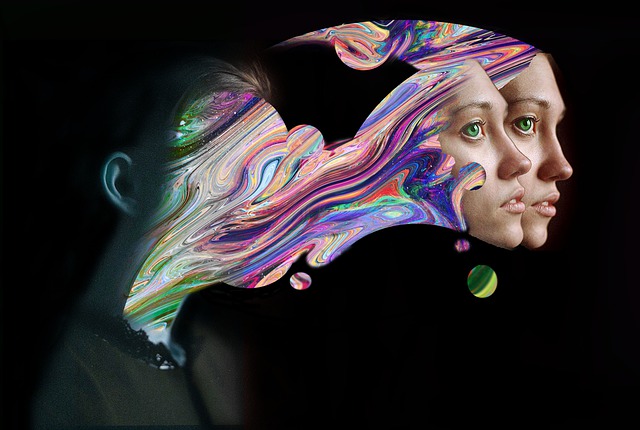 IB asks: “I’m hearing a lot about the use of psychedelics in psychiatric therapy. Aren’t these substances illegal and is this therapy legit?”
IB asks: “I’m hearing a lot about the use of psychedelics in psychiatric therapy. Aren’t these substances illegal and is this therapy legit?”Yes, this therapy is indeed legitimate and is actually a continuation of research that began decades ago but was halted with the passage of the Controlled Substances Act in 1970 when psychedelic drugs were placed on the most restrictive “Schedule 1” category of drugs. Prior to the 1970s, scientists in several countries were conducting extensive, peer-reviewed, research on the use of psychedelics for the treatment of addiction, anxiety, and depression, particularly the type associated with terminal illnesses.
However, with the increased legalization of some psychedelic drugs, this therapy is making a comeback and serious research is being done in what is now known as psychedelic-assisted psychotherapy. A range of consciousness-altering drugs are used in this therapy; plant-derived psychedelics such as psilocybin (magic mushrooms), and chemical compounds such as LSD, MDMA (known as Ecstacy/Molly) and ketamine.
Unlike conventional psychiatric drugs which are self-administered at home or as needed, psychedelic drugs are administered during an extended psychotherapy session which is usually lengthy, lasting about eight hours, or even staying the night in a facility. This enables the patient to be observed during the active phase of the drug. Only those patients who have been prescreened and found to be free of any history of psychotic disorders or hypertension, which can be aggravated by the use of psychedelics, are considered to be candidates for this type of therapy.
Because hallucinogenic drugs are known to induce powerful experiences, therapists remain non-directive and mostly just record whatever the patient wants to share about what they are experiencing at the moment.
“The following day there will be an ‘integration session,’ in which the therapists talk to the patient to help them make sense of the experience,” we read in this article appearing in CNBC. “The patient might circle back to the reasons why they pursued the treatments in the first place and discuss what they felt or saw during the experience, for example.”
 Neuroscientists such as Jennifer Miller a professor in the departments of neurology, psychiatry and behavioral sciences at the University of California San Francisco believe these substances are effective in treating historically difficult-to-treat conditions by essentially “reshaping” the way “parts of the brain talk to each other.”
Neuroscientists such as Jennifer Miller a professor in the departments of neurology, psychiatry and behavioral sciences at the University of California San Francisco believe these substances are effective in treating historically difficult-to-treat conditions by essentially “reshaping” the way “parts of the brain talk to each other.”
This is because, as Dr. Stephen Ross, associate professor of psychiatry at the NYU Grossman School of Medicine, who has been conducting clinical trials on psilocybin-assisted therapy for the past 16 years, explains, research on mice has found that a single dose of psilocybin led to an increase in connections between neurons that lasted for a month afterward.
When on psychedelics, “parts of the brain that don’t normally speak to each other start to communicate with each other, and it appears to reset brain patterns in some way,” he says.
Thus far, recent research on the effects of psychedelic therapy are promising. For example, peer-reviewed science has found this therapy to provide substantial and sustained decreases in anxiety in patients suffering from terminal cancer.
“When administered under psychologically supportive, double-blind conditions, a single dose of psilocybin produced substantial and enduring decreases in depressed mood and anxiety along with increases in quality of life and decreases in death anxiety in patients with a life-threatening cancer diagnosis.”
Psilocybin has also proven clinical efficacy in the treatment of alcoholism and drug use.
"Similar to the potential therapeutic effects of classic psychedelics to treat depression, there are likely psychological and physiological components to the efficacy of classic psychedelics to treat addiction," this study confirms. "Unlike with depression, where there is currently no evidence definitively establishing a physiological component, there is data from animal models demonstrating that classic psychedelics have efficacy to block drug seeking behaviors ranging from cocaine self-administration to alcohol preference.”
Because of the complexity of the effects of psychedelics on the brain, scientists are still studying why these drugs appear to work to relieve certain conditions. One theory about the effectiveness of psychedelic therapy is the experience of awe that is elicited by these “trips.”
“…[A]we is experienced whenever humans encounter stimuli so vast and novel that they must alter their understanding of reality. Nature, religious/spiritual practices, and music are common elicitors of awe,” we read in this study. “Nature, religious/spiritual practices, and music are common elicitors of awe…[C]lassic psychedelics may ultimately produce profound awe.”
Psychedelic substances, when used in a clinical setting, are considered to be low risk. However, buying these drugs on the street and self-administering them, is another story. These dangers include purchasing contaminated substances and having “bad trips”, particularly with LSD which can result in what’s known as hallucinogen persisting perception disorder or HPPD which involves intense flashbacks and hallucinations. Although this can happen when the drug is administered under medical supervision, it is far more common in those who self-administer.
Psychedelics are also linked to an increased risk of psychosis in people who have a psychotic disorder to a predisposition to them.
In addition, MDMA and psilocybin can both cause short-term elevated blood pressure. Finally, as of today, health insurance does not cover psychedelic therapy because the drugs in use are still considered to be Schedule I drugs under the Controlled Substances Act. Even though experts anticipate MDMA may be rescheduled within the next two years, until these drugs are taken off this list, patients should expect to absorb the cost of treatment.
© All Rights Reserved, Living His Life Abundantly®/Women of Grace® http://www.womenofgrace.com
